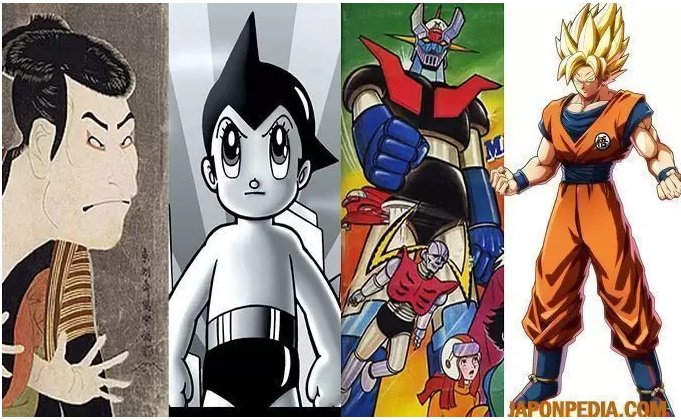
My greetings friends hivers, anime lovers, this time I don't bring you a review or anything I'm not bringing you a review or anything like that, today I decided to tell you, according to what I was I was researching and reading on the internet, I made a small post about the history of history of anime, when it came out, its first editions and also its creators. anime, as we know it today, and although there is not a single creator of anime, it can be said that its anime as we know it today, and although there is no single creator of anime, it can be said that its development was the result of a combination of influences from Western animation and Japanese artistic traditions.Western animation and Japanese artistic traditions. Modern anime has developed over decades and has been influenced by numerous artists, directors and animation studios in artists, directors and animation studios in Japan. The first anime short film was created in 1917 by Japanese animator Junichi Kouch.
☆…☆…☆…☆…☆…☆ ☆…☆…☆…☆…☆…☆☆…☆…☆…☆…☆…☆
The best-selling manga in history is One Piece (1997), with over 406 million copies sold worldwide... for the moment.
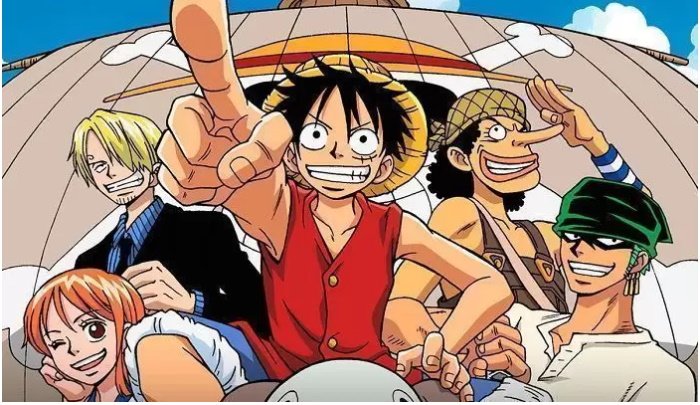
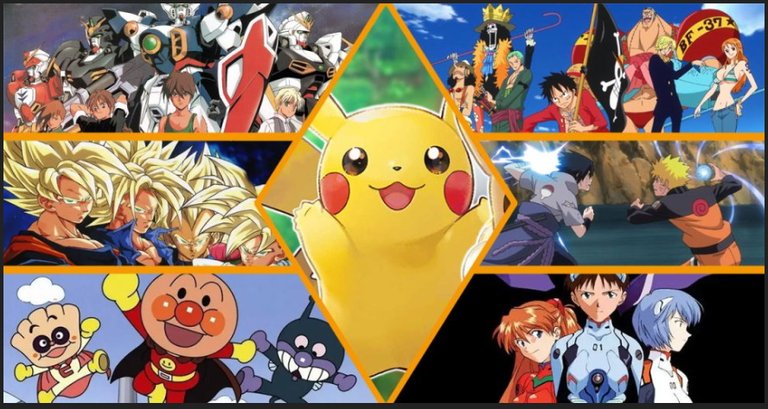
Anime is a genre of animation that originated in Japan in the early 20th century. The word "anime" is an abbreviation of "animēshon" which is the Japanese transliteration of the English word "animation". Anime encompasses a wide variety of styles and genres, and has become a popular art form worldwide.The history of anime dates back to the early years of the 20th century, when animated short films began to be produced in Japan. However, the real boom in anime came after World War II, when the Japanese film industry began to recover and expand. It was at this time that the first animation studios emerged in Japan, such as Toei Animation and Mushi Production, which laid the foundations for anime production in the country.
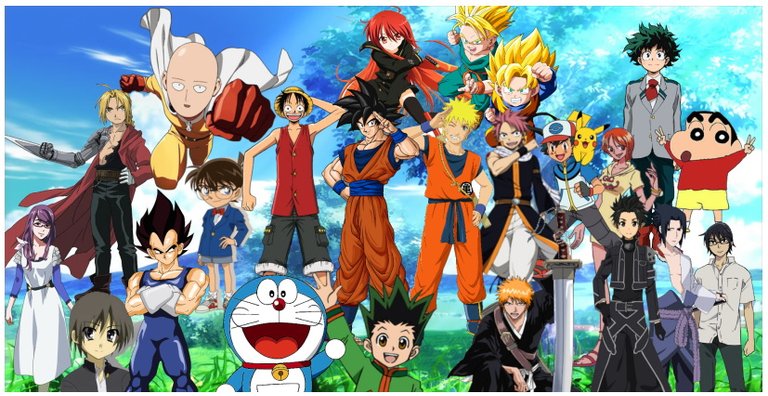
In the 1960s and 1970s, anime began to gain popularity both in Japan and abroad. Series such as "Astro Boy" and "Speed Racer" became international hits and contributed to the spread of anime outside Japan. As the industry grew, new genres and styles of anime emerged, from science fiction and fantasy to drama and comedy.In the 1980s and 1990s, anime experienced an unprecedented boom, with the arrival of iconic series such as "Dragon Ball," "Sailor Moon" and "Neon Genesis Evangelion." These series not only attracted a wider audience, but also helped cement anime's influence in Japanese and global popular culture.
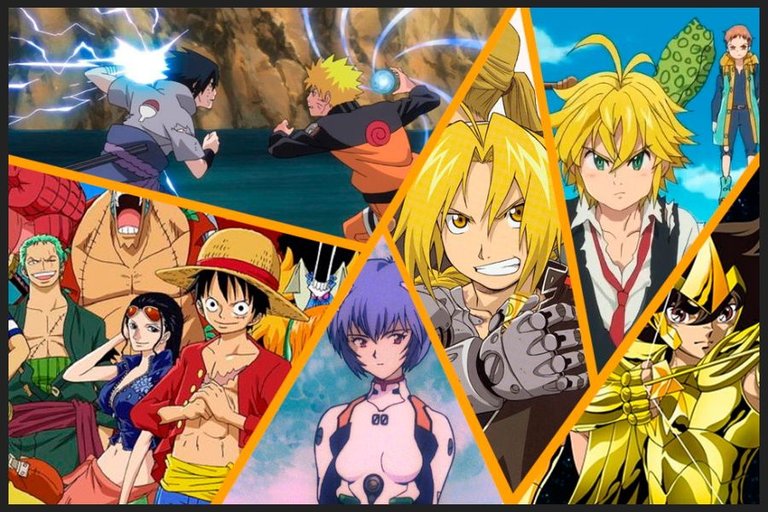
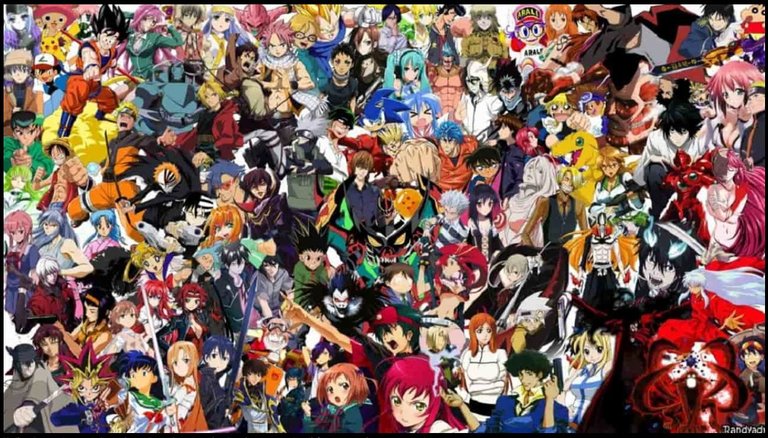
Vkontakte
»>»>»>»↠ ≈☆≈ ↞«<«<«<«»>»>»>»↠ ≈☆≈ ↞«<«<«<
Versión en Español

Mis saludos amigos hivers, amantes del anime, en esta ocasión no les traigo una reseña ni nada parecido, hoy decidí contaros , según estuve investigando y leyendo en internet hice un pequeño post sobre la historia del anime , cuando surgió, sus primeras ediciones y también sus creadores, El anime, como lo conocemos hoy en día, y aunque no hay un único creador del anime, se puede decir que su desarrollo fue el resultado de la combinación de influencias de la animación occidental y las tradiciones artísticas japonesas. El anime moderno se ha desarrollado a lo largo de décadas y ha sido influenciado por numerosos artistas, directores y estudios de animación en Japón. El primer cortometraje de anime se creó en 1917 por el animador japonés Junichi Kouch.
☆…☆…☆…☆…☆…☆ ☆…☆…☆…☆…☆…☆☆…☆…☆…☆…☆…☆
El manga más vendido de la historia es One Piece (1997), con más de 406 millones ejemplares vendidos en todo el mundo… de momento.


El anime es un género de animación que se originó en Japón a principios del siglo XX. La palabra "anime" es una abreviatura de "animēshon" que es la transliteración japonesa de la palabra inglesa "animation". El anime abarca una amplia variedad de estilos y géneros, y se ha convertido en una forma de arte popular en todo el mundo. La historia del anime se remonta a los primeros años del siglo XX, cuando se empezaron a producir cortometrajes animados en Japón. Sin embargo, el verdadero boom del anime llegó después de la Segunda Guerra Mundial, cuando la industria cinematográfica japonesa comenzó a recuperarse y a expandirse. Fue en esta época cuando surgieron los primeros estudios de animación en Japón, como Toei Animation y Mushi Production, que sentaron las bases para la producción de anime en el país.

En los años 60 y 70, el anime comenzó a ganar popularidad tanto en Japón como en el extranjero. Series como "Astro Boy" y "Speed Racer" se convirtieron en éxitos internacionales y contribuyeron a la difusión del anime fuera de Japón. A medida que la industria crecía, surgieron nuevos géneros y estilos de anime, desde la ciencia ficción y la fantasía hasta el drama y la comedia.En los años 80 y 90, el anime experimentó un auge sin precedentes, con la llegada de series icónicas como "Dragon Ball", "Sailor Moon" y "Neon Genesis Evangelion". Estas series no solo atrajeron a un público más amplio, sino que también ayudaron a consolidar la influencia del anime en la cultura popular japonesa y global.


Twitter
Reddit
Instagram
Linkedin
Vkontakte
creo que pudiste hablar mas de partes importantes de la historia como la pelicula de akira o las sailor moon mas que hablar en un contexto general... ya que eso le da mas profundidad a lo que tratas de contar... pero igual buen recopilatorio
Hola, si y tambien de Momotaro Umi no Shinpei (Mitsuse Seo, 1945) o de Dragon Ball,o de naruto o de Hayao Miyazaki con Mi vecino Totoro, o como Rumiko Takahashi con Inuyasha o Ranma 1/2, entre otros.Pero la idea era de hacer un pequeño post, no de escribir un libro, jajaja ,Gracias por tu comentario.
!discovery 15
This post was shared and voted inside the discord by the curators team of discovery-it
Join our Community and follow our Curation Trail
Discovery-it is also a Witness, vote for us here
Delegate to us for passive income. Check our 80% fee-back Program
Thank you very much
Congratulations @yoani! You have completed the following achievement on the Hive blockchain And have been rewarded with New badge(s)
Your next target is to reach 300 upvotes.
You can view your badges on your board and compare yourself to others in the Ranking
If you no longer want to receive notifications, reply to this comment with the word
STOPCheck out our last posts: